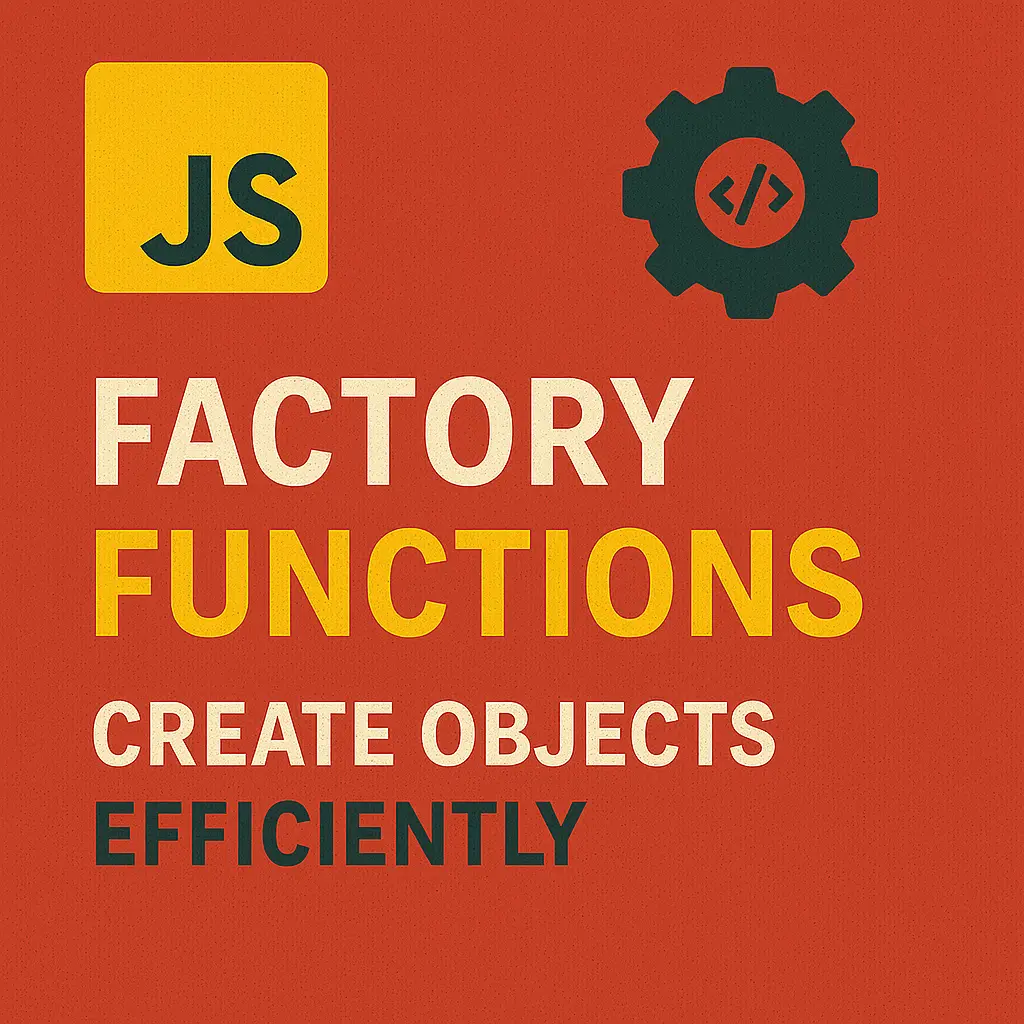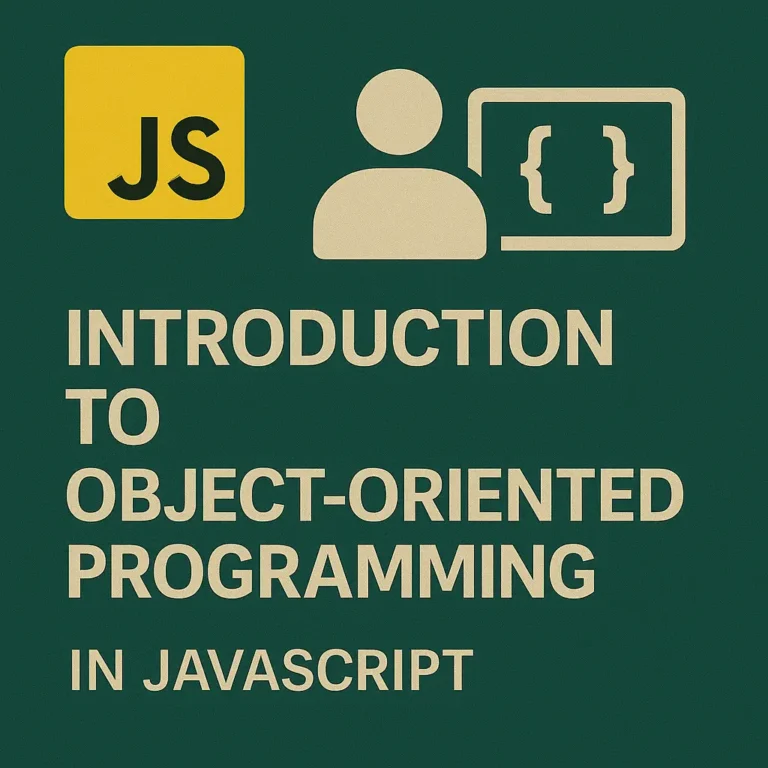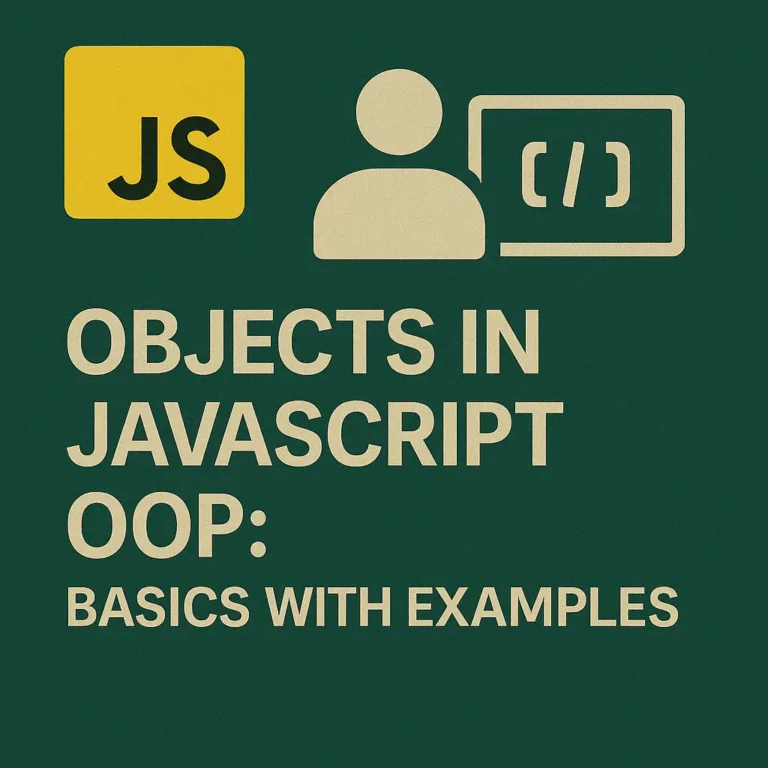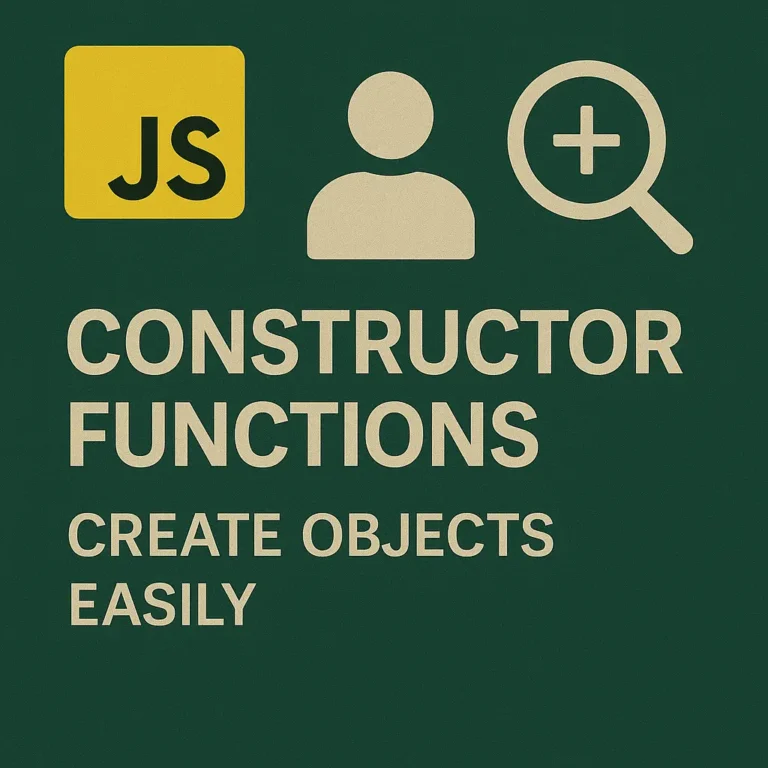Factory functions enable the creation of objects with customizable properties and behaviors, promoting code reusability, encapsulation, and abstraction. In this comprehensive guide, we’ll explore the concept of factory functions in JavaScript, delve into their creation, examine how they return objects, and discuss various use cases where factory functions shine.
Creating Objects with Factory Functions
A factory function is a function that returns an object. It serves as a blueprint for creating multiple objects with similar properties and behaviors. Factory functions encapsulate the object creation process, allowing for greater control and customization.
function createCircle(radius) {
return {
radius,
area() {
return Math.PI * Math.pow(radius, 2);
}
};
}
const circle1 = createCircle(5);
const circle2 = createCircle(10);
console.log(circle1.area()); // Output: 78.53981633974483
console.log(circle2.area()); // Output: 314.1592653589793
In the example above, we define a createCircle factory function that takes a radius parameter and returns an object representing a circle. The returned object contains a radius property and an area method, encapsulating the circle’s properties and behavior within a single object.
Returning Objects from Factory Functions
Factory functions can return objects with customizable properties and behaviors. By encapsulating object creation logic within the factory function, developers can easily create objects with different configurations.
function createUser(name, age) {
return {
name,
age,
greet() {
console.log(`Hello, my name is ${name} and I'm ${age} years old.`);
}
};
}
const user1 = createUser('John', 30);
const user2 = createUser('Alice', 25);
user1.greet(); // Output: Hello, my name is John and I'm 30 years old.
user2.greet(); // Output: Hello, my name is Alice and I'm 25 years old.
In this example, the createUser factory function returns objects representing users with customizable name, age, and greet properties. Each object encapsulates the user’s data and behavior, allowing for easy creation and manipulation.
Use Cases for Factory Functions
Object Creation:
Factory functions are ideal for creating multiple objects with similar properties and behaviors. They encapsulate the object creation process, promoting code reuse and maintainability.
function createProduct(name, price) {
return {
name,
price,
display() {
console.log(`Product: ${name}, Price: ${price}`);
}
};
}
const product1 = createProduct('Laptop', 999);
const product2 = createProduct('Smartphone', 699);
product1.display(); // Output: Product: Laptop, Price: 999
product2.display(); // Output: Product: Smartphone, Price: 699
Customization:
Factory functions allow for greater customization of object properties and behaviors. Developers can easily create objects with different configurations by passing different parameters to the factory function.
function createLogger(prefix) {
return {
log(message) {
console.log(`[${prefix}] ${message}`);
}
};
}
const logger1 = createLogger('INFO');
const logger2 = createLogger('ERROR');
logger1.log('Application started'); // Output: [INFO] Application started
logger2.log('Internal server error'); // Output: [ERROR] Internal server error
Abstraction:
Factory functions promote abstraction by encapsulating complex object creation logic. They hide implementation details and provide a clear interface for creating objects, making code more readable and maintainable.
function createShape(type, dimensions) {
if (type === 'circle') {
return createCircle(dimensions.radius);
} else if (type === 'rectangle') {
return createRectangle(dimensions.width, dimensions.height);
}
}
const circle = createShape('circle', { radius: 5 });
const rectangle = createShape('rectangle', { width: 10, height: 5 });
Conclusion
Factory functions in JavaScript offer a flexible and powerful approach to object creation, enabling developers to create objects with customizable properties and behaviors. By encapsulating object creation logic within functions, factory functions promote code reusability, encapsulation, and abstraction. Whether you’re creating multiple objects with similar configurations, customizing object properties and behaviors, or abstracting complex object creation logic, factory functions provide a versatile solution for a wide range of programming scenarios. By mastering the concept of factory functions, developers can write cleaner, more maintainable, and more scalable code that meets the demands of modern software development.






